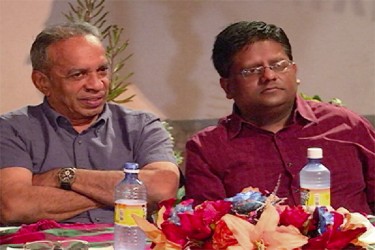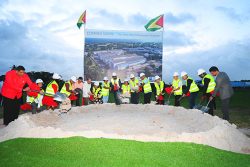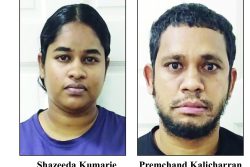Minister of Finance, Dr. Ashni Singh, is calling for more involvement by civil society to foster and promote social programmes.
His call was made at the opening ceremony of the Guyana Salvation Army Diner and Social held on Friday evening, a Ministry of Finance press release said on Saturday.
“Nowhere in the world can government alone confront and overcome all of the challenges faced by a country,” he said. “Responsible social partners and responsible citizens are an absolutely critical prerequisite if our country is to achieve what we want of it.”

Singh said that the work of the Salvation Army drug rehabilitation centre is to be applauded for reforming persons and re-integrating them back into their communities and societies.
“We want to ensure that each and every one of you get a fair chance to make an optimal contribution to the growth and development of our country,” said the Finance Minister at the event to current and former clients.
Singh, the release said, pledged Government’s continued support once it continues to achieve its goals.
Last year the government gave $16M in capital funding to expand the drug rehabilitation programme in its effort to accommodate more clients.
“At that stage we were looking to attract female clients too,” the Minister told the gathering.
“I wish to urge the Salvation Army to replicate the outstanding success that has been achieved with male clients, to extend the programme to include female clients,” he said.
Singh implored the participants to stay with the programme and to maximize the resources and facilities as part of their recovery.
“I believe substance abuse has distracted you from your intended calling… We need you badly to return to the path on which you have been put on this earth to walk”, he said.
Chief counsellor at the rehabilitation centre Amarnauth Parsad noted that the year has been one of the most successful for the organization as all of their clients have remained in the programme compared to previous years where a number of them suffered relapses and left.
He attributed the turnaround to a combination of factors including government support, stronger leadership and the ability of the organization to hire more qualified staff.
“The fact that successfully rehabilitated clients who remain clean and sober maintain contact is a distinct motivation (for) us to continue our mandate,” said Parsad.
The chief counsellor is also looking forward to next year with plans to expand the organization’s building and programme, the inauguration of a prison drug rehabilitation programme and the continuation of a work and skills training scheme for persons who successfully complete the drug rehab programme.








